Some of the links on this page contain affiliate links. Renaissance Path is a participant in the Amazon Associates Program, an affiliate advertising program that provides a way for websites to earn advertising fees by linking to products. We only link to products we normally use and trust. When you purchase an item through the link we receive a small commission at no additional cost to you. This helps pay for the costs associated with running this blog. Your support is greatly appreciated. Thank You!
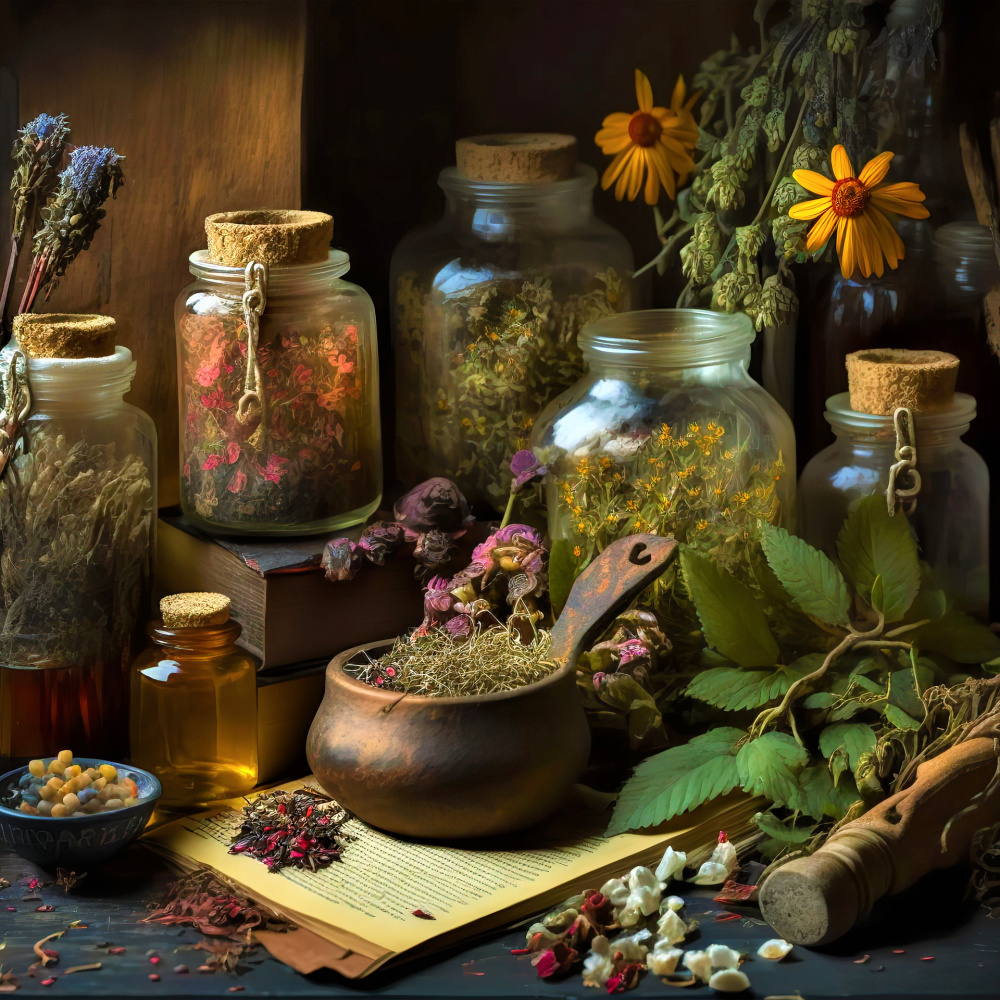
16 Herbal Remedies for Anxiety
Anxiety is an emotion most people can say they have experienced at some point in their life. It is a part of the human experience. But for some of us, anxiety can be excessive and negatively impact our daily lives. You can manage anxiety in several ways, there is exercise, meditation, rest, counseling, medication, supplements, and herbs. A lot of people don’t realize they probably have some herbal remedies for anxiety already in their kitchen cupboard or pantry.
There are many herbs that are proven to have anti-anxiety properties. Below are 16 herbal remedies for anxiety.
Ashwagandha
Ashwagandha(Withania somnifera) is one of the most known herbal remedies for anxiety. It is a small-sized perennial shrub. The root of the shrub is what is used as herbal medicine. It is native to India and grows best in Zone 6 but can be grown in other regions. It tends to do best where the temperature is 70-90 degrees.
A systematic review and meta-analysis of randomized controlled trials on the effects of ashwagandha on stress and anxiety found the herb to be beneficial. The studies showed ashwagandha significantly reduced anxiety. 1200 mg was the dose found to reduce anxiety and a dose of 300-600 mg helped with stress(1).
Parsley
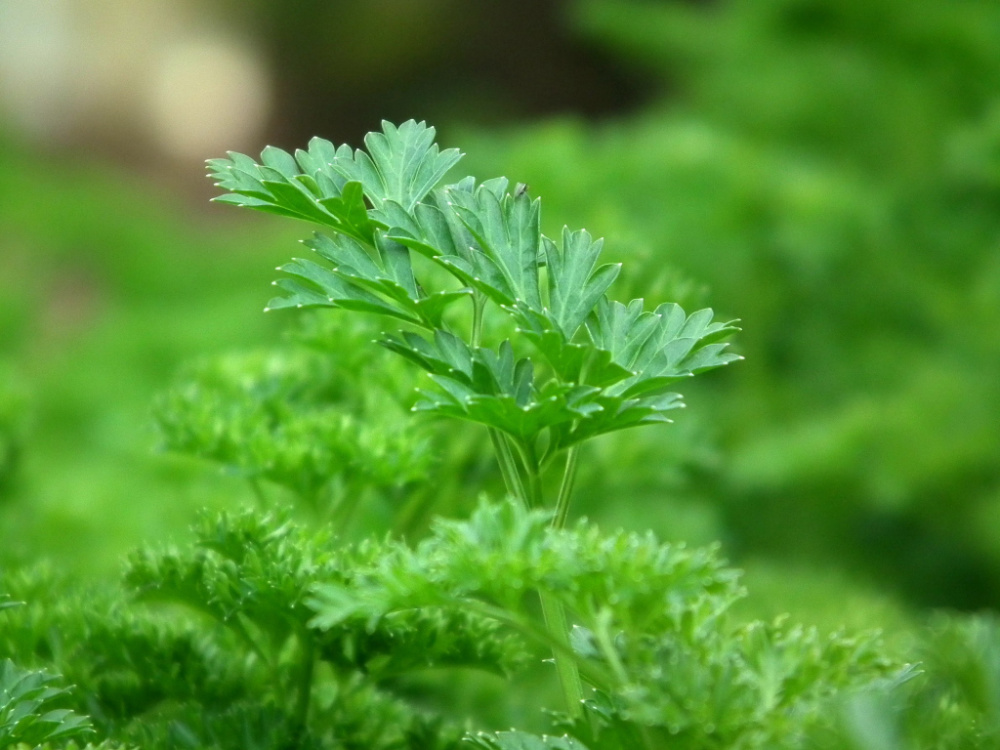
Parsley(Petroselinum sativum) is a culinary herb used all over the world. In fact, it has been studied and shown to have remarkable antidepressant-like and anti-anxiety activity(2). Yes! It’s amazing how many herbs have the power to provide relief from anxiety and depression.
Parsley contains an impressive flavonoid called apigenin. Apigenin has relaxing and sedative effects and parsley contains a large amount of apigenin.
Lemon Balm
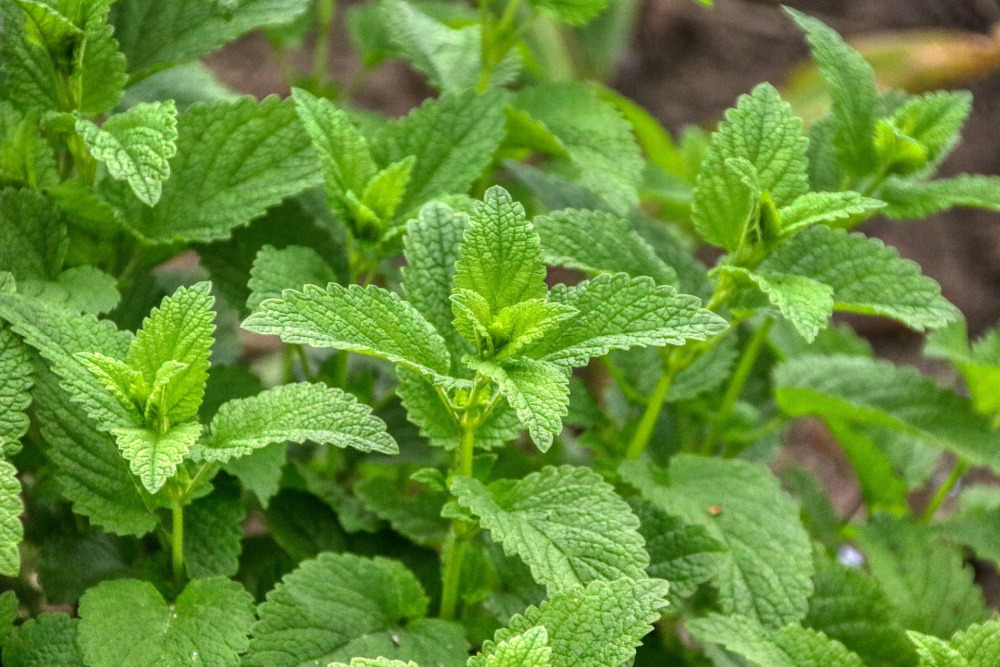
Lemon Balm(Melissa officinalis) is a herb with a lovely lemon flavor. It is in the same family as mint. Most commonly lemon balm is consumed as a fresh or dried tea. But it can be dried, powdered and encapsulated to be taken daily or as needed. Or it can be made into a tincture.
Lemon Balm is gentle and effective for anxiety and is even safe for children. It also has been known to assist with sleep, helping to relax tense muscles, indigestion, cold sores, and many other ailments. Where I believe lemon balm shines most is in helping with anxiety and reducing tension.
You can read about the studies on lemon balm being used for anxiety and stress here.
Chamomile
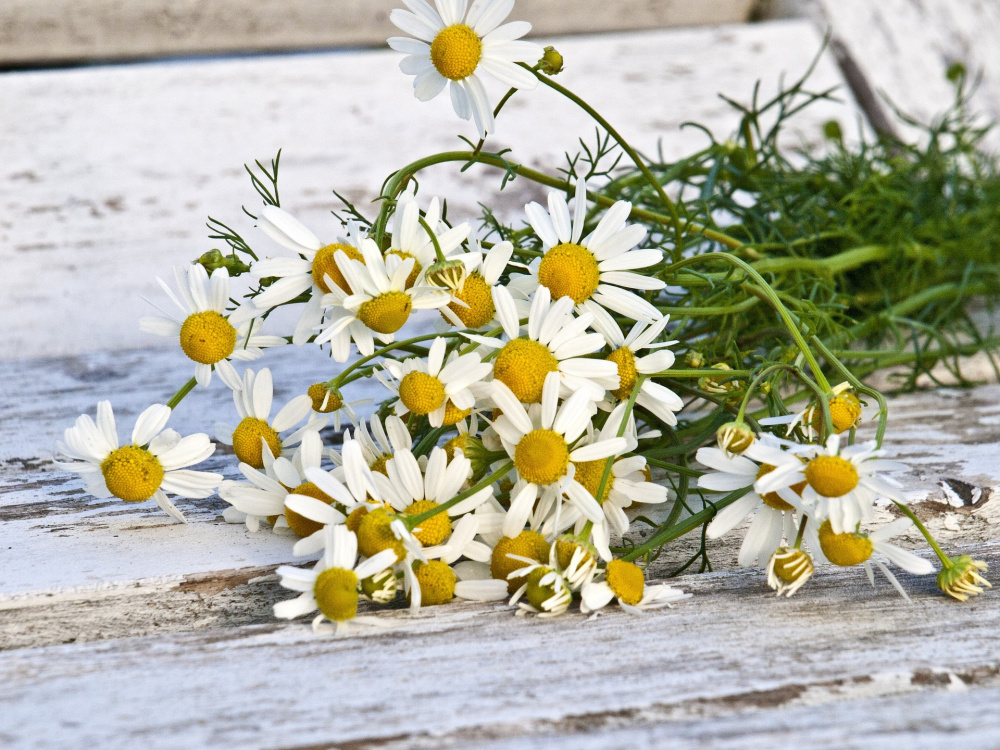
Chamomile (Matricaria recutita) is a daisy-like flower that is mostly known and consumed as tea. There are several types of chamomile. There is German Chamomile (Matricaria recutita) and Roman Chamomile (Chamaemelum nobile). Those are the most common ones used to make calming teas and tinctures.
What is really great about Chamomile is it is excellent for alleviating anxiety. Chamomile extract was given to 61 participants with Generalized Anxiety Disorder(GAD). Over the 8-week study, it was found that chamomile extract had moderate anti-anxiety activity in patients with mild to moderate Generalized Anxiety Disorder(4).
Lavender
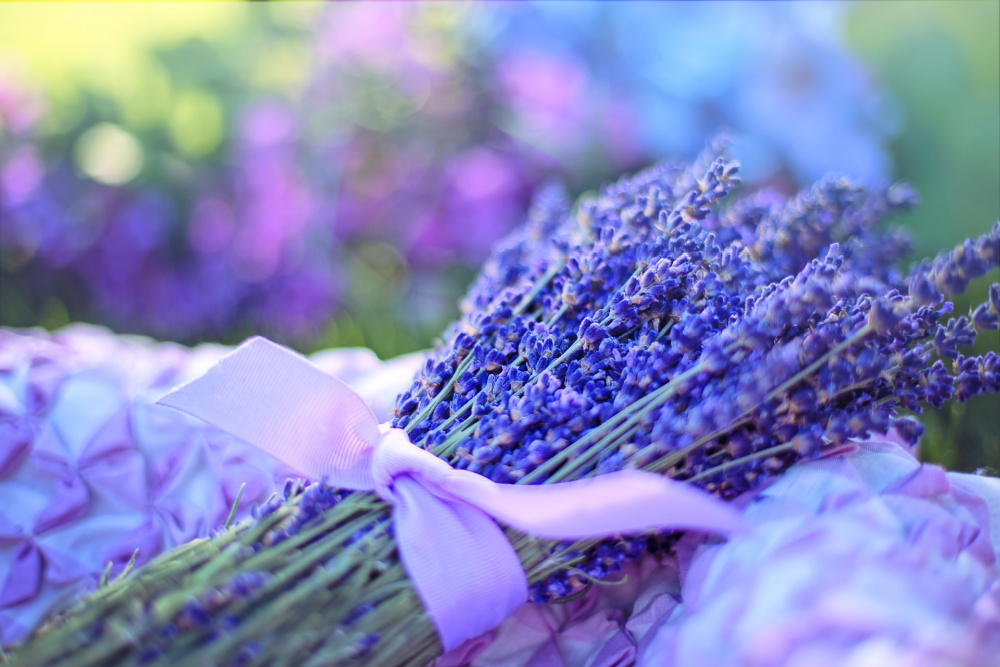
Lavender((Lavandula) is much more than an aromatic flowering shrub. It is amazing for anxiety. Lavender can be used in cooking, as a tea, in aromatherapy, and topically in ointments or oil blends. You can even purchase lavender oil capsules on Amazon.
Lavender has a positive affect on the parasympathetic nervous system(PNS). Lavender has been studied and found to have anti-anxiety properties as well as mood-stabilizing, neuroprotective, sedative, and pain-relieving properties(5). One study found lavender and orange essential oils diffused in a dental office helped reduce anxiety and stress around dental procedures(6).
Kava Kava
Kava Kava(Piper methysticum) is an evergreen shrub with woody stems and heart-shaped leaves growing in the tropics. Kava Kava has been a ceremony drink consumed in Pacific cultures for at least 1500 years. Nowadays, you can buy Kava Kava in dried powder, capsules, and tinctures. There are even Kava bars throughout the US.
Kava Kava is known for its ability to calm and reduce anxiety. In a 6-week study, 75 participants with Generalized Anxiety Disorder were given an aqueous extract of Kava (120/240 mg of kavalactones). The results showed a significant reduction in anxiety compared to the placebo group(7).
Turmeric
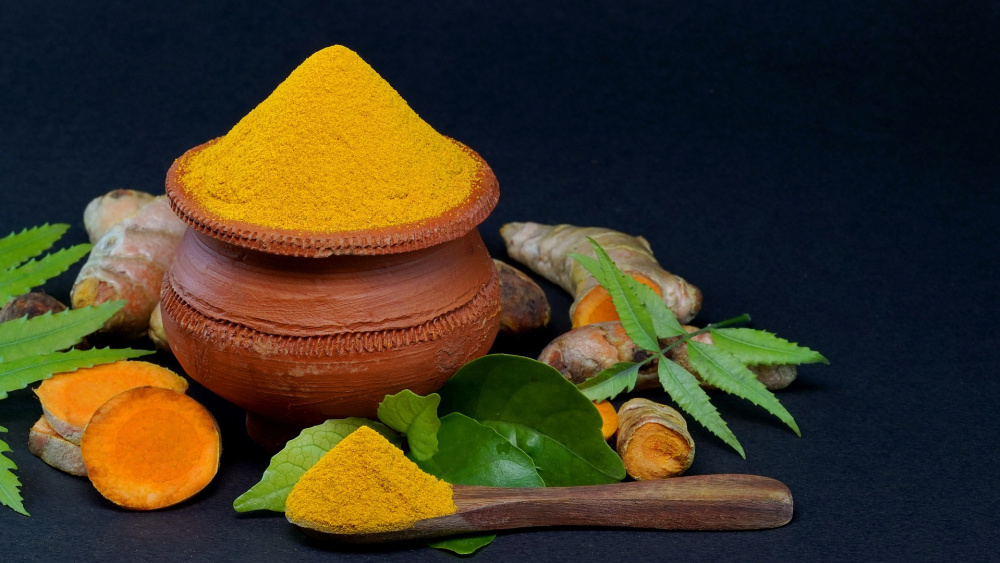
Turmeric(Curcuma) is a culinary spice most known for its bright yellow/orange color as well as being an ingredient in curry powder. The main compound in turmeric is curcumin. Curcumin is anti-inflammatory, anti-cancer, and a powerful antioxidant and many other things. But did you know Turmeric is good for anxiety? Yes, it sure does! In fact, it is not hard to find scientific evidence proving turmeric/curcumin helps with anxiety. (8,9,).
Turmeric can be consumed by taking powdered capsules, drinking golden milk, or sprinkling it on food or smoothies.
Passion Flower
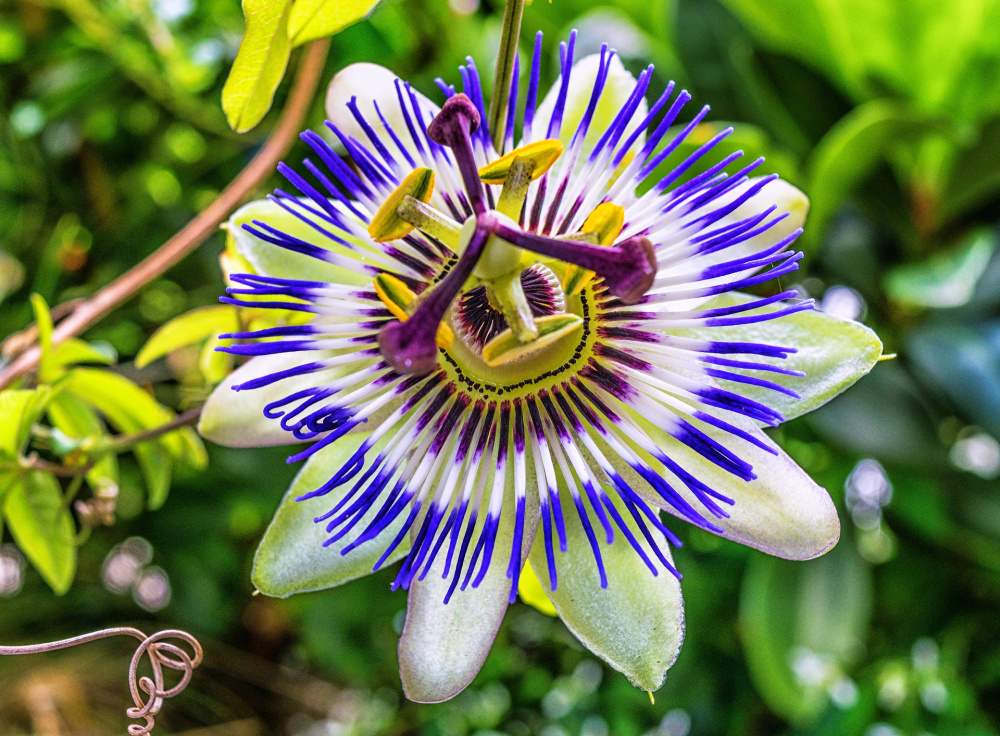
Passion Flower(Passiflora incarnata) is a flowering climbing vine. The flower was named after the Christian missionaries who discovered it in The Americas in the 16th century. The Christian missionaries believed the flower resembled the Passion of Christ.
- The filaments-the Crown of Thorns
- The Style-the three nails that nailed Jesus to the cross
- The five stamens-the five wounds
- The 10 petals-the 10 apostles
- The fruit represents the world that Jesus saved
Studies show the Passion flower is helpful for relief from anxiety and can reduce stress reactivity(10). Researchers believe that Passion flower works by increasing levels of a neurotransmitter called gamma-aminobutyric acid (GABA). GABA has a calming effect on the brain.
In another study, Passion flower was compared to the prescription drug oxazepam for treatment of Generalized Anxiety Disorder(GAD). 36 patients were divided into 2 groups, 18 taking Passiflora extract drops/45 per day and the group of the other 18 patients took oxazepam 30mg daily with placebo drops for 4 weeks. At the end of the 4 week trial there was no significance in the effectiveness. In fact the Passiflora was found to have an advantage because of low occurrence of job impairment and performance(11).
Passion flower can be taken in pill form, tea, or tinctures.
Lions Mane Mushroom
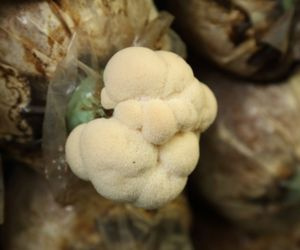
Lions Mane Mushroom(Hericium erinaceusis) a fungus that grows on dead or dying trees, stumps, or logs. Research on Lions Mane is promising. This fungus has been shown to be a super star for brain health. Its neuroprotective, helps with cognition and memory, anti-cancer, helps with nerve damage, boosts immune health and relieves mild depression and anxiety(12,13).
Lions Mane can be taken in tea form, tinctures, capsules, or eaten sautéed.
Valerian Root
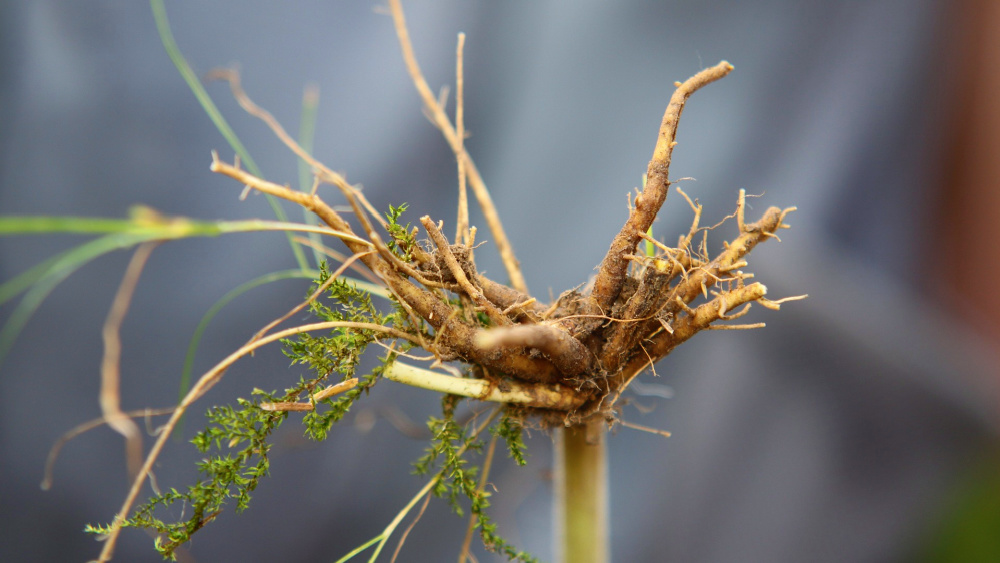
Valerian root(Valeriana officinalis) has the nickname natures valium. Valerian has a long history of use. It can be traced back as far as the second century. It was used to treat stomach cramps, insomnia, and headaches. Today valerian is more known for its ability to calm nerves, and anxiety and help with insomnia, PMS, and migraines.
While scientists aren’t quite sure how valerian root is effective at relieving anxiety, they believe it increases levels of GABA a neurotransmitter that reduces stress and calms the body and mind(14).
Valerian root can be taken as a tincture, pill or as a tea. Be adviced valerian has a pungent odor that can resemble stinky cheese or feet. But if you can get pass that it really does help calm the nerves.
Holy Basil
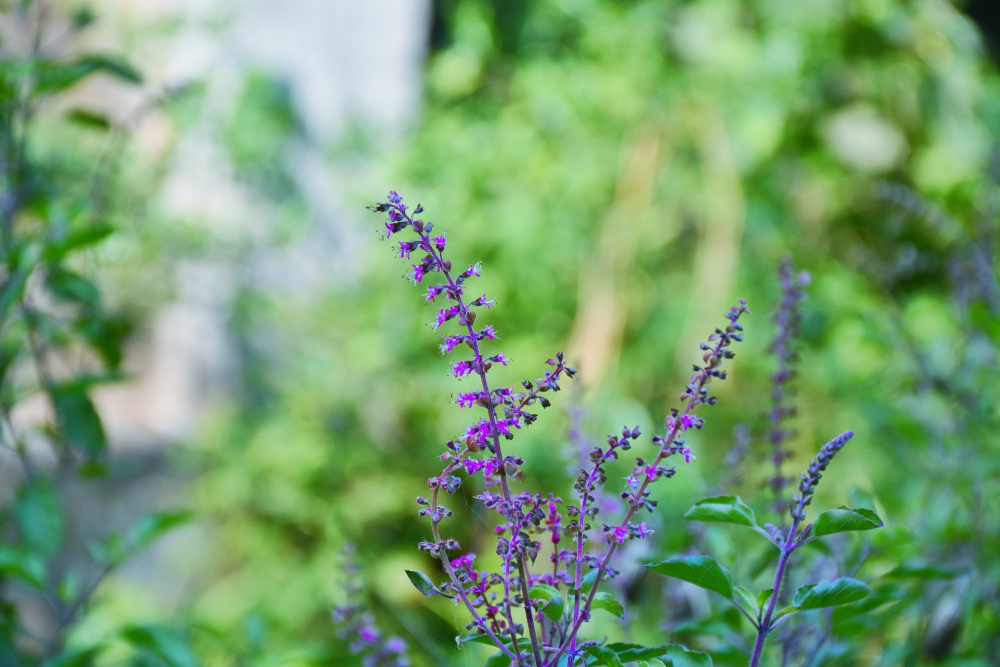
Holy Basil(Ocimum tenuiflorum) is a perennial flowering plant in the mint family. Holy basil is a well-used herb in folk medicine as well as Ayurvedic medicine. Holy basil is very aromatic and is a common house plant found in India. It was been used for thousands of years in ancient India. Holy Basil is also referred to as Tulsi.
Holy Basil is considered to be an adaptogen herb. Adaptogens are plants, herbs, and mushrooms that help our bodies manage stress and reduce our body’s sensitivity to stressors. The compounds in Holy Basil thought to give its anti-anxiety actions are ocimumosides A and B, and apigenin(15,16). Holy Basil is a good choice for stress and anxiety.
American Skullcap
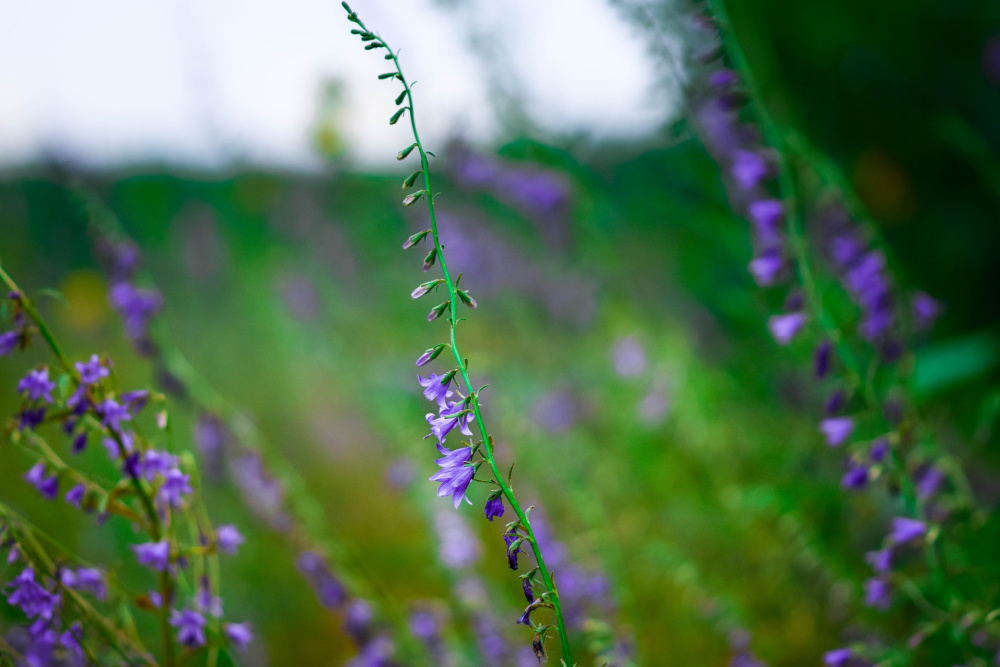
American Skullcap(Scutellaria lateriflora) is a perennial flowering plant in North America. Skullcap has a long history of being used for several hundred years. European settlers learned how to use American Skullcap from Native American tribes. It was used to treat diarrhea, bring on menstruation, and expel the afterbirth(17). In the late 19th century physicians were starting to use Skullcap to treat muscle spasms, irregular heart rhythm caused by nervousness, twitching, nervous tics, and even epilepsy(18).
A study done in 2003 on 19 subjects showed skullcap noticeably reduced their anxiety(19). Another study showed Skullcap improved mood in healthy participants(20).
Black Horehound
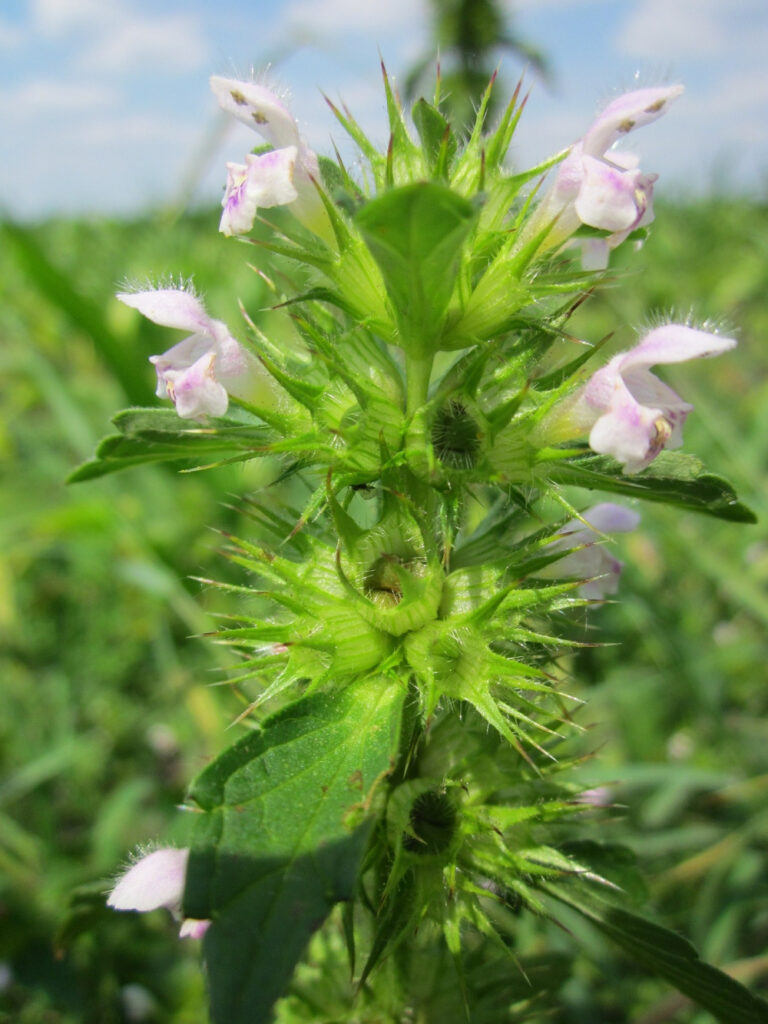
Black Horehound(Ballota nigra) is a hairy perennial plant in the mint family. Most people know horehound as an ingredient in cough syrups, or cough drops like Ricola. There is white horehound and there is black horehound. There is a difference. The horehound plant has a strong stinky smell to it which can be off-putting for some people. If you can get past the smell of this plant it has many health benefits.
In folk medicine, Black Horehound has been used as a natural mild expectorant and also used to slow the flow of heavy menstrual periods. It was also sometimes used for nausea associated with motion sickness. Black horehound has been shown to have anti-anxiety properties.
In a clinical study where patients with anxiety disorders, depression, and sleep disorders were given Black Horehound liquid extract for 90 days, after 60 days 65% of the participants showed improvement in symptoms, and after 90 days 73% of participants said they experienced relief from disease symptoms(21).
Saffron

Saffron(Crocus sativus L.) is a herb that comes from the Crocus flower. Each crocus has 3 stigmas(female part), this reddish-orange stigma is what we call the spice/herb saffron. Saffron is a very expensive spice because of how tedious the harvesting process is. Each stigma has to be hand plucked.
Saffron has a long history of use as everything from being used as a dye, perfume, seasoning, medicine, and even as an offering to the deities. Saffron was used by many ancient cultures like Greece, Rome, Mesopotamia, and throughout Asia. Uses of saffron for medicinal purposes can be traced back hundreds to a few thousand years (22). Saffron has been studied and shown to help with depression and anxiety and improve moods. It was even found to be as effective as prescription drugs like Imipramine and Prozac(23).
Saffron can be purchased in a pill form and also be drunk as tea as well as used as a spice in cooking. It is a great herbal remedy for anxiety.
Motherwort
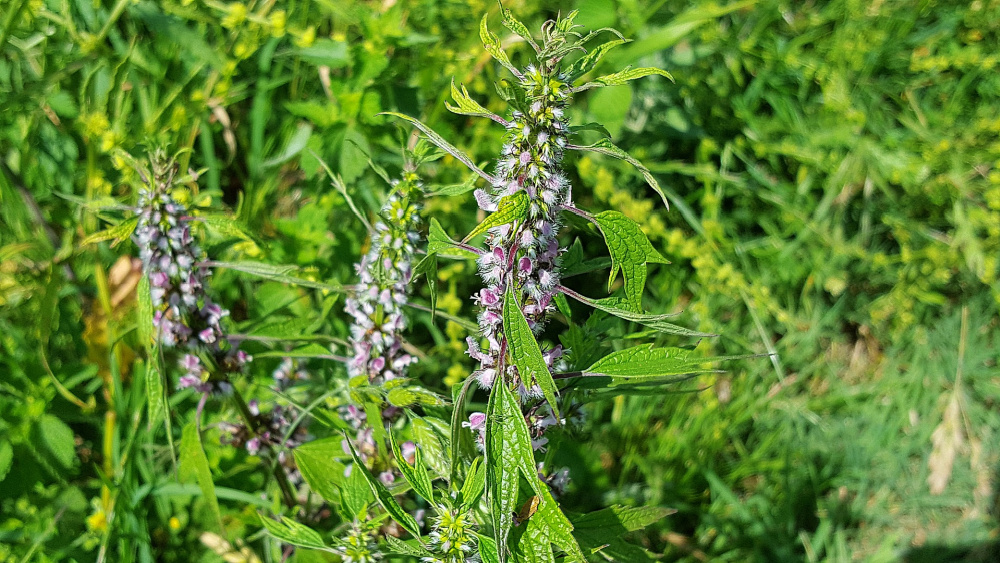
Motherwort((Leonurus cardiaca) is a perennial herb that can be found growing worldwide. Originally native to Europe and Asia. Ancient Greeks used Motherwort for the heart and for anxious women during childbirth. Native Americans used it as a nerve tonic.
Motherwort has been known to help relieve anxiety and used throughout history because of its sedative properties. It has even been studied and shown to be effective for anxiety(24).
Motherwort can be taken as a tincture, tea/infusion, or in pill form.
Milky Oats
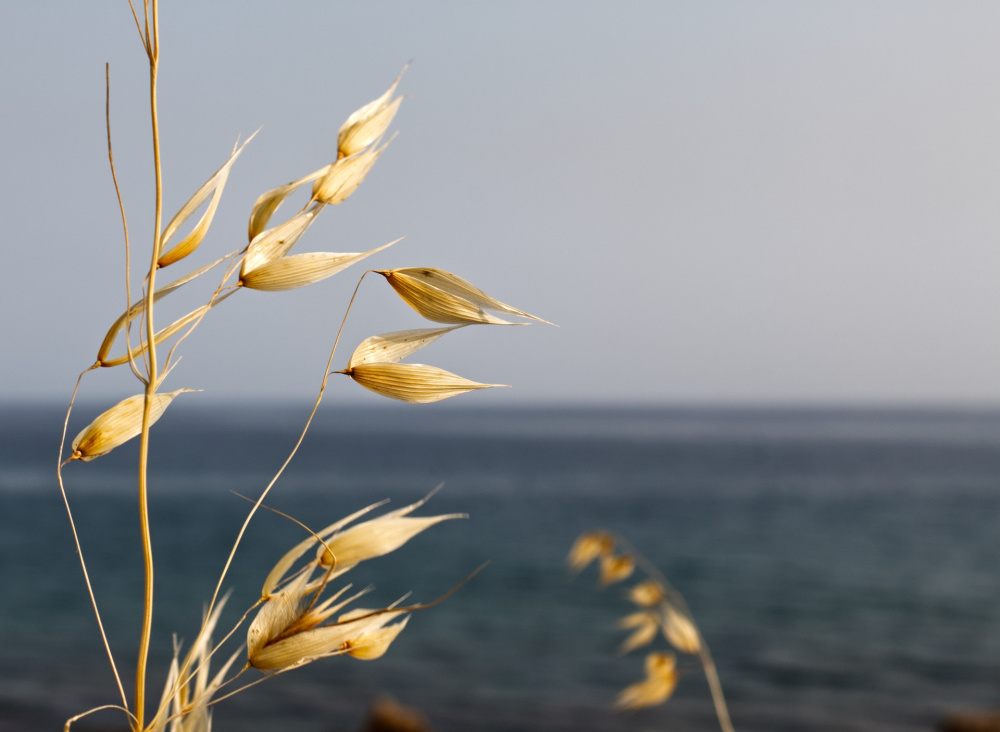
Milk Oats(Avena sativa) is the oat tops of the oat plant. Milky Oats are a trophorestorative herb. Trophorestoratives are herbs/plants that nourish and strengthen organs or tissues, in this case, milky oats help nourish and restore the nervous system.
Milk oats are gentle enough to consume daily and can support a healthy nervous system and reduce your body’s response to stress and anxiety. In one clinical study, participants were given a single dose of milky oats daily over a four-week period and results showed significant benefits to cognitive function, in regard to memory, executive functioning, and tracking(25).
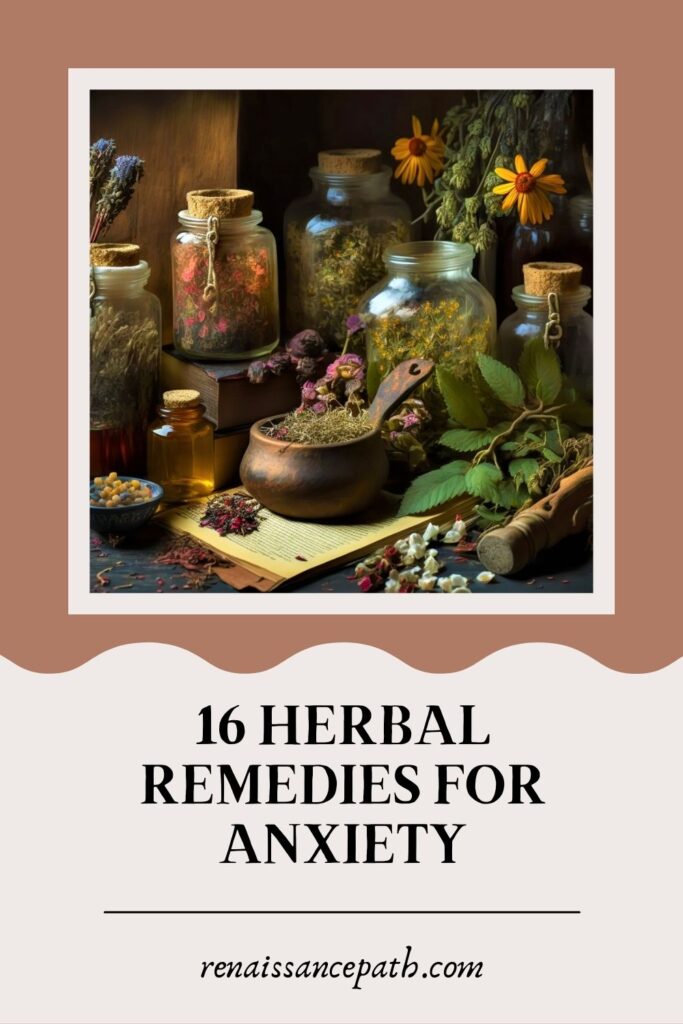
Final Thoughts
These are just some herbal remedies for anxiety. All of these herbs mentioned above have been used for centuries to help manage anxiety and they are effective. Please talk to your doctor before starting any new supplement or herb.
Have you tried any of these for stress or anxiety? Let me know if I helped you.
Much Love,
Melissa
If you like learning about the healing properties of herbs please check out this post here.
This website is for educational purposes only. The information provided by Renaissance Path is not intended to diagnose, treat, or cure any diseases. Please consult a qualified health care professional for medical advice.
Leave a Reply